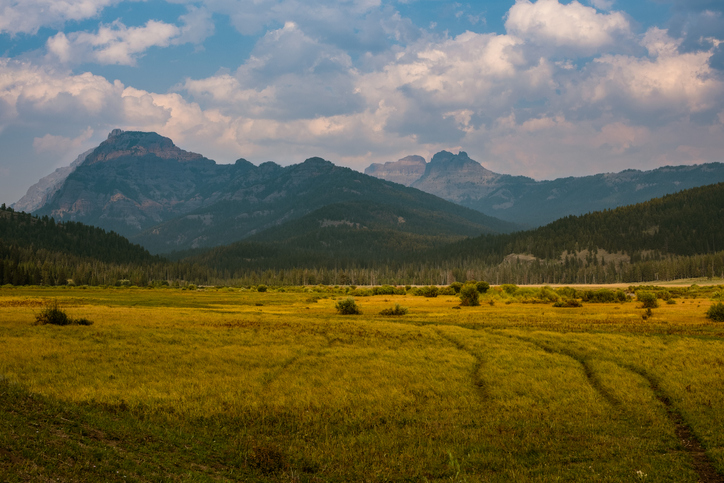The popular neo-western series Yellowstone launched its fifth season with a remarkable viewership rating of over 12 million, which is quite a feat given that it didn’t start out with much fanfare in 2018, and season 4 left some feeling slighted in 2021.
According to Kevin Costner, executive producer and star of the show, Yellowstone’s popularity was achieved “on its own terms” – and the same can be said for its characters. There are several storylines running through the series, with blood ties and ranch life linking them together, but each character is truly distinct even when closely aligned. Brothers and lovers have no pull on the paths each person chooses to pursue.
At its core, the series depicts how important it is for individuals to find their purpose and a place to belong. At Yellowstone, one’s job is viewed as a privilege, not a right, and ranch living is far cry from what many expect today from their chosen profession (there certainly isn’t an HR firm promoting work-life balance or a mentorship program ensuring job satisfaction).
New recruits wander onto the ranch in need of work, with some opting to become lifers like Rip and Lloyd, while others beg to belong despite atrocious experiences, like Teeter. The ranch is seen for what it is, a place to earn and learn, and no one comes to realize this more than the character known as Jimmy.
Jimmy is mentally and physically challenged by Yellowstone, but being able to accrue work experience, and learn from the best, ends up being worth its weight in gold. After facing his own demons, discovering his own unique talents, and developing grit far beyond what he could have imagined, he is able to establish a new life for himself. Initially, Jimmy had little to offer and suffered a lot, but for his character, the words of Thomas Sowell certainly rang true: “experience trumps brilliance.”
Before Yellowstone, Jimmy was a moocher. After, he became what Ayn Rand would call an honest man. “An honest man is one who knows that he can’t consume more than he has produced,” and is someone who takes pride in being “the owner of his mind and his effort.”
Pride and purpose are powerful themes throughout the series, and while a hierarchy exists, status is not what is sought. The ranchers, for example, maximize the use of their core competencies and operate within their realms of expertise. They never balk at the fact that it is their work that enables Kevin Costner’s character, John Dutton, to sustain his lifestyle.
Dutton’s large house and personal chef, as compared to their communal living quarters and meager meals, are of no concern. Dutton built a life for himself and his family, and they have been hired to help him maintain it. Rip and Lloyd do not envy him, and Dutton never belittles them for the role they play.
Just like any founder who grows an enterprise empire, we are better off for the opportunities it brings and would be worse off without the option. If advantageous alternatives arise, we should be free to pursue them, as Jimmy does, or aspire to build an empire of our own, as the Duttons did.
As the series unfolds, the success of the Dutton family depicts the best parts of capitalism (a system based on incentives, trade-offs, and transactions) and the worst parts of cronyism (a system based on rent-seeking for power positions and policy preferences in the political realm). Yellowstone perfectly illustrates in season four, and now in season five, the push-pull factors of a mixed economic system, and the dangers derived from businesses and bureaucrats being bedfellows.
Capitalism and free markets generate a “system of natural liberty,” as conveyed by Adam Smith, but cronyism generates a system of sycophants and thugs. In season five, we may find the Duttons further their political prowess not for notoriety’s sake, but to lessen their sense of captivity via the state. For John Dutton, his property is paramount to his person, which is why he will do whatever it takes to maintain control over it.
Overall, the Dutton family has an intriguing appeal. They are impervious and imperfect; they are devoted but far from dependent; they are uncompromising and conniving; and perhaps most importantly, they are aware of their vulnerabilities but would rather die than be viewed as victims.
The reason the Duttons draw us in is not because they embody the American Dream, but rather because they remind us of the American Creed.
I do not choose to be a common man.
It is my right to be uncommon—if I can.
I seek opportunity—not security. I do not wish to be a kept citizen, humbled and dulled by having the state look after me.
I want to take the calculated risk; to dream and to build, to fail and to succeed.
I refuse to barter incentive for a dole. I prefer the challenges of life to the guaranteed existence; the thrill of fulfillment to the stale calm of utopia.
I will not trade freedom for beneficence nor my dignity for a handout. I will never cower before any master nor bend to any threat.
It is my heritage to stand [tall], proud and unafraid; to think and act for myself, enjoy the benefit of my creations and to face the world boldly and say, “This I have done.”
—“An American Creed” by Dean Alfange
Originally published by the American Institute for Economic Research. Republished with permission under a Creative Commons Attribution 4.0 International License.
For more great content from Rights, Justice & Culture News.
For more great content from Budget & Tax News.
For more from The Heartland Institute.
